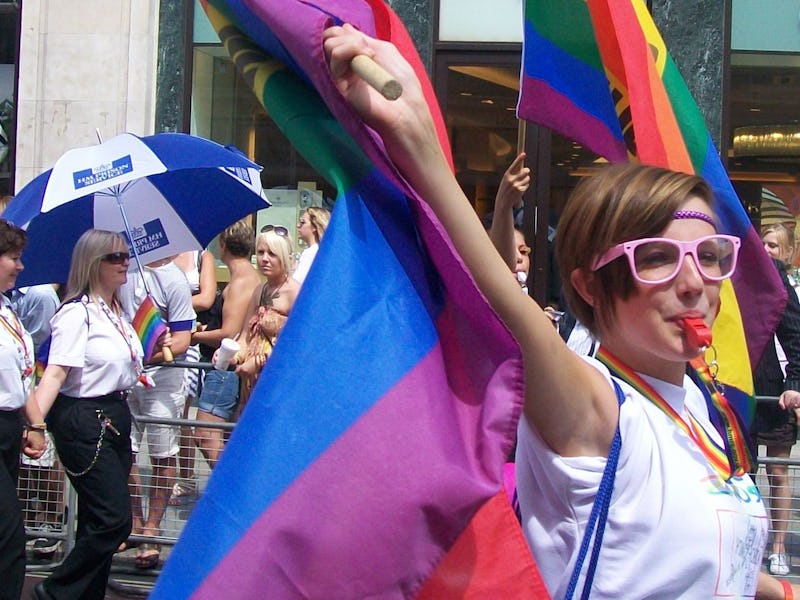Science Confirms Homophobes Have Anti-Social Tendencies
It should surprise no one that anti-gay folk don't play well with others.

A new study published by the International Society for Sexual Medicine demonstrates that prejudice against homosexuals is strongly correlated with a number of (mostly unpleasant) psychological traits. Italian researchers surveyed 551 undergraduate students to see if bigotry could or couldn’t be linked to a broader psychological profile. It could, but it’s not simple so let’s unpack the jargon a bit.
Homophobes expressed significantly more signs of psychoticism, which does not mean they were all crazy. In psychology, psychoticism and psychosis are two different things. Psychoticism characterizes personality traits that are aggressive and anti-social. Psychoticism is a risk factor for psychotic disorders like schizophrenia, but they are not equivalent terms. Under that definition, it makes basic sense that hostility towards gay people and psychoticism are correlated.
The study also found that homophobic people are more likely to use immature defensive mechanisms, which basically means they don’t respond well in difficult social situations and are prone to acting out. Here, again, the finding tracks with common experience. Anyone who’s ever confronted a gay marriage protester has likely been met with with a rhyming couplet or false equivalency.
In relationships, homophobes are also more likely to have a fearful attachment style, which means they feel insecure, run away from their feelings, and tend to have moody outbursts. These personality traits, taken together, don’t point to severe mental illness. They do, however, indicate that homophobia is fundamentally anti-social, not political.